The last half: A review of the ProTour teams' seasons
What was the last half of the 2008 season like for the 18 ProTour teams, and how did the whole year...
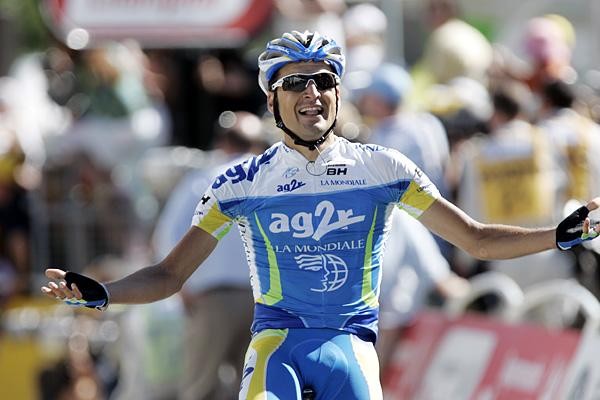
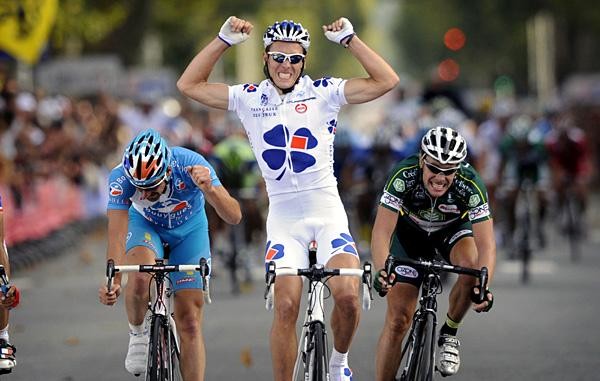
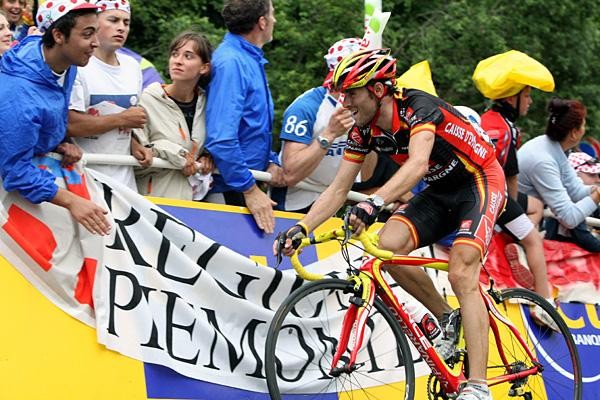
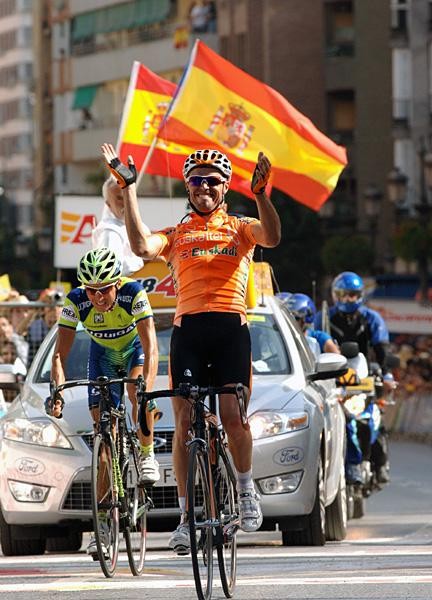
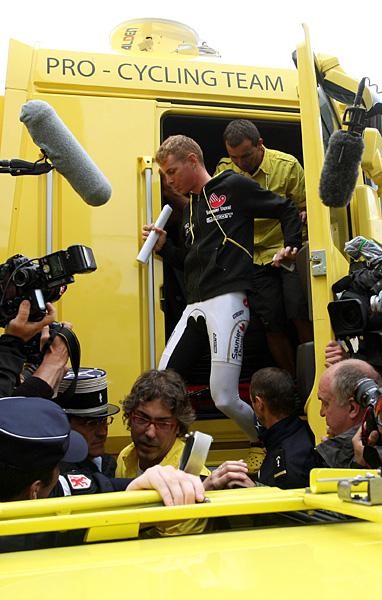
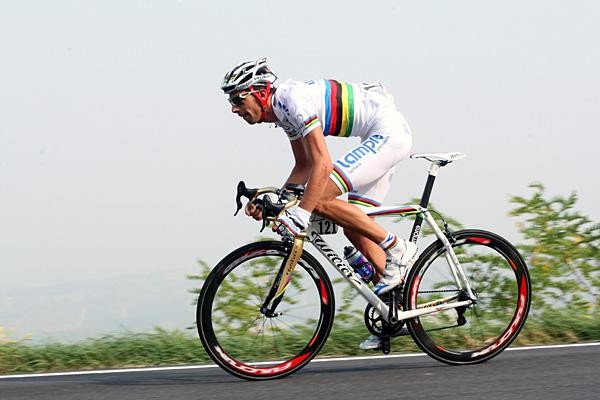






News feature, November 4, 2008
What was the last half of the 2008 season like for the 18 ProTour teams, and how did the whole year turn out? As the Cyclingnews staff asked, "What went right and what went wrong?"
Here is part one of a team-by-team analysis, with the teams listed in no particular order
AG2R La Mondiale
What went right: The French team's season could stand or fall with the Tour de France, and Vincent Lavenu was lucky: The team's top Frenchman, Cyril Dessel, did not surrender to pressure but delivered the all-important stage win (stage 16 from Cuneo to Jausiers). The 2006 wearer of the yellow jersey scored a total of four important victories this season. The team's foreign riders, like Tadej Valjavec and Vladimir Efimkin, also performed very well in the Tour, finishing tenth and eleventh respectively. Efimkin even placed second behind Riccardo Riccò on stage nine to Bagnères de Bigorre – if the Italian is disqualified, it would mean a second stage victory for AG2R La Mondiale.
What went wrong: It took the team a while to come up to top form this year. From early March until mid-May, the squad remained completely anonymous on the ProTour races, and it missed out on the French Cup completely. A drop of performance was also observed after the Tour de France.
Holding out for: Lavenu hasn't changed his rider roster much for 2009, except for adding Irish up-and-coming talent Nicolas Roche for next season, as well as Sébastien Hinault and Efimkin's twin brother Alexander. The younger riders cannot keep up at the moment, but experienced riders like Dessel, Valjavec, Efimkin, Nocentini and Elmiger make up for it.
Get The Leadout Newsletter
The latest race content, interviews, features, reviews and expert buying guides, direct to your inbox!
Overall: Even though the first half of the 2008 season was dominated by a feeling of frustration, success in the Tour de France saved the team's season. Dessel came back successfully from the toxoplasmosis infection that ruined his last year, and other newcomers to the squad confirmed their competitiveness. Lavenu can be satisfied.
Française des Jeux
By Hedwig Kröner
What went right: The team's star rider, Philippe Gilbert, did not miss out on a successful season, winning the Belgian season opener, Omloop Het Volk, for the second time, as well as the less famous GP Le Samyn in an almost untouchable manner. After an unlucky mid-season, where he finished second on four occasions – including a stage at the Tour de France and one at the Vuelta – his lucky star was out again and he won his first major Classic, Paris-Tours.
What went wrong: Gilbert is leaving the team at the end of the season, as he signed with his native Silence-Lotto squad for next year. Although he doesn't exclude coming back to France one day, his departure leaves a blank spot in the team. Moreover, the Tour de France did not go according to plan. Gilbert finished an unlucky second in stage one, and his teammate Sandy Casar repeated this on stage 16 to Jausiers. Rémy Di Gregorio, the team's climber, was not up to expectations, either.
Holding out for: Except for Gilbert, the overall team performance this year could have been better. Jussi Veikkanen scored a stage win in the Deutschland Tour in August, the team's only ProTour victory this year. Together with Veikkanen, Benoît Vaugrenard, who took a stage and the overall in the Tour du Poitou Charentes, will be one of the team's talents to watch out for. Team manager Marc Madiot's veterans Frédéric Guesdon and Christophe Mengin are on the decline, with the latter retiring at the end of the season.
Overall: With Gilbert taking the Paris-Tours honours but leaving the team next year, Madiot must have mixed feelings going into the holidays. Good to know that Madiot's younger riders are coming along well, so the team's future should be bright if the four-leafed clover remains faithful. Coming into the team for 2009 are notably Anthony Geslin from Bouygues Telecom, Christophe Le Mevel from the defunct Crédit Agricole and Wesley Sulzberger, an Australian hopeful.
Caisse d'Epargne
By Bjorn Haake
What went right: Alejandro Valverde is still the man to beat when it comes to difficult finishes in a small group. Valverde used his skills to add another great Classic to his palmarès, the Clásica San Sebastián. He used the same skills to clobber everyone in the first stage of the Tour de France, netting him the yellow jersey. His consistency won him the ProTour title for the second time in his career.
Luis León Sánchez added another stage win, helping the team at least achieve its lowest possible expectations for the Grand Tour in France. In the Vuelta a España, stage wins came through David Arroyo and Imanol Erviti. José Rujano finished sixth in the Deutschland Tour.
What went wrong: The Tour de France and the Vuelta a España should have gone better for Valverde. The Tour started out great, with a stage win, but then Valverde fizzled out and ended La Grande Boucle in ninth place. In the Vuelta a España, things looked reasonably good until a cold day in the mountains saw Valverde go to the team car for a jacket at the wrong moment and Astana made sure Valverde wasn't going to be contending for the overall anymore.
Caisse was the only team that came anywhere close to staying with Contador on the decisive Angliru stage. Valverde finished second, 42 seconds back, while Joaquím Rodríguez ended the day in third, at 0:58. Valverde also matched Contador on the final mountain time trial up to the Alto de Navacerrada, but both were a good half minute behind winner Levi Leipheimer.
Rodríguez was only 50 seconds behind his captain Valverde in the general classification. This helped them to earn the teams classification win, but clearly they would have preferred the individual honours.
Holding out for: Winning a big stage race, finally. This year was supposed to be the year, but again it didn't work out. Caisse may have to look around for another rider besides Valverde, who has a great kick and can take great wins in Classics and shorter stage races. But the Grand Tours don't seem to be his thing.
Overall: Despite not winning the Tour de France and the Vuelta a España, which were big objectives, the team can nonetheless be happy with its performance. Taking the teams classification at the Vuelta shows the depth of the team. Valverde delivered great classics wins as well as taking out a prestigious stage race like the Dauphiné Libéré.
Other team members had good wins as well and the young Rujano will likely make the Spanish outfit happy in the near future.
Euskaltel - Euskadi
By Monika Prell
What went right: This little team has the reigning Olympic champion in its ranks – in August, Samuel Sánchez fulfilled all hopes and dreams by winning the Olympic road race in Beijing. He only won two races this season, the Vuelta a Asturias time trial and the Olympic road race. Sánchez also finished seventh overall in the Tour de France and was second on the L'Alpe d'Huez stage.
The rider who won the most races was the sprinter Koldo Fernández. Although a win in one of the Grand Tours eluded the 27 year–old, he was able to win stages of the Vuelta a Murcia, the Vuelta a Castilla y León, the Euskal Bizikleta, the Vuelta a Burgos and the Tour de Vendée. Young hope Igor Antón also showed his talent, performing well in the Tour de Suisse, where he was able to win a stage, and the Vuelta a España, where he was leader, but unfortunately had to abandon due to a crash.
What went wrong: The number of victories really does not show the strength of the team. Fernández de Larrea still has to learn how to position himself well in the mass sprints. Haimar Zubeldia, who was set as leader in the Tour de France, was a total loss. Furthermore, he signed a contract with Astana, so that the team will lose one of their best men.
Holding out for: The team will be smaller in 2009. Six riders are set to leave the team: Zubeldia will leave for Astana, Antton Luengo will retire from cycling due to personal reasons, Jon Bru, Dionisio Galparsoro, Beñat Albizuri and Lander Aperribai did not get new contracts and will have difficulties finding new teams. Only two riders will enforce the team next year: Mikel Nieve from Orbea Oreka and the strong sprinter Pablo Urtasun.
Overall: The path the team is following is not bad at all. Being united and showing the strength of a team is exactly what they needed. Sánchez will be the team's sole leader, in light of Antón's inexperience and Zubeldia's departure. After some rumours of a possible contract with Cervélo after his Olympic win, Sánchez and the team affirmed that the champion will stay at least until 2010.
Saunier Duval – Scott / Scott - American Beef
By Monika Prell
What went wrong: After a slow start in of the season, the team set all its hope in the Tour de France. They were able to fulfil the expectations, winning three stages – Riccardo Riccò two and Leonardo Piepoli one. The team was happy until the eleventh stage, when a positive A sample was announced: Riccò tested positive for EPO CERA. The team retired from the competition. Piepoli was also announced as positive and Saunier Duval declared its withdrawal as sponsor. It seemed that there was no hope to save the team.
What went right: Scott took over the principal sponsorship and good relations with Ricardo Creel, the owner of Rica Burger and American Beef as well as one of the organisers of the Vuelta a Chihuahua, where the team participated in 2007, facilitated the search for a co-sponsor. The team was named "Scott-American Beef."
The future seemed assured. The team participated in the Vuelta a Mexico where Alberto Benítez was able to win stage four and five. They dominated the Vuelta a Delicias with stage the wins of Iker Camaño and Rubén Lobato, and the overall win by Camaño.
Holding out for: The team announced that they will have an Italian sponsor and that they will remain at the highest level as UCI ProTour team.
Overall: After the 2007 season when the team dominated a lot of races, they had to be content with a more reserved season. Their best man Ángel Gómez Marchante was bothered by a ulcerative colitis that put him out of action for almost the entire season. Cobo and David De La Fuente didn't either show the strength of the year before. Many riders want to leave the team, like Ángel Gómez Gómez and David Cañada.
Lampre
By Gregor Brown
What went right: Team Lampre's top two riders produced two big wins in the second half of the 2008 season. Alessandro Ballan, though racing in the Italian national strip, won the World Championships in dominating style. Damiano Cunego, second behind Ballan at the Worlds, took victory in the Giro di Lombardia three weeks later.
The Italian duo also won two other big races. Ballan was the surprise victor in a mountains stage of the Vuelta a España and held the overall jersey for one day. Cunego won the Japan Cup in his last race of the year.
The team celebrated three wins from its sprinter Danilo Napolitano, solid season by Marzio Bruseghin – who completed all three Grand Tours – and several top tens from Mirco Lorenzetto.
What went wrong: The Tour de France did not go very well for the team. It backed Cunego for the overall victory. He skipped the Giro d'Italia and focused his early season on the Tour, where he faded in the final week before crashing out. Ballan joined the key escape group in stage 11, but was out-foxed in the sprint and finished third. The Paolo Bossoni positive control for EPO was a sour note for the team and cycling's anti-doping fight.
Holding out for: The team will continue to support Cunego in the Ardennes Classics and Grand Tours for 2009. Ballan will try to win the Paris-Roubaix, as well as other big races, in his rainbow jersey. The team will welcome European ProTour winner Enrico Gasparotto.
Overall: Italy's other big team, Liquigas, bettered Lampre this year in the wins column. Giuseppe Saronni's team is strong and will continue to be in 2009. It will continue to lock horns with Liquigas, and their stars, Ivan Basso and Daniele Bennati.